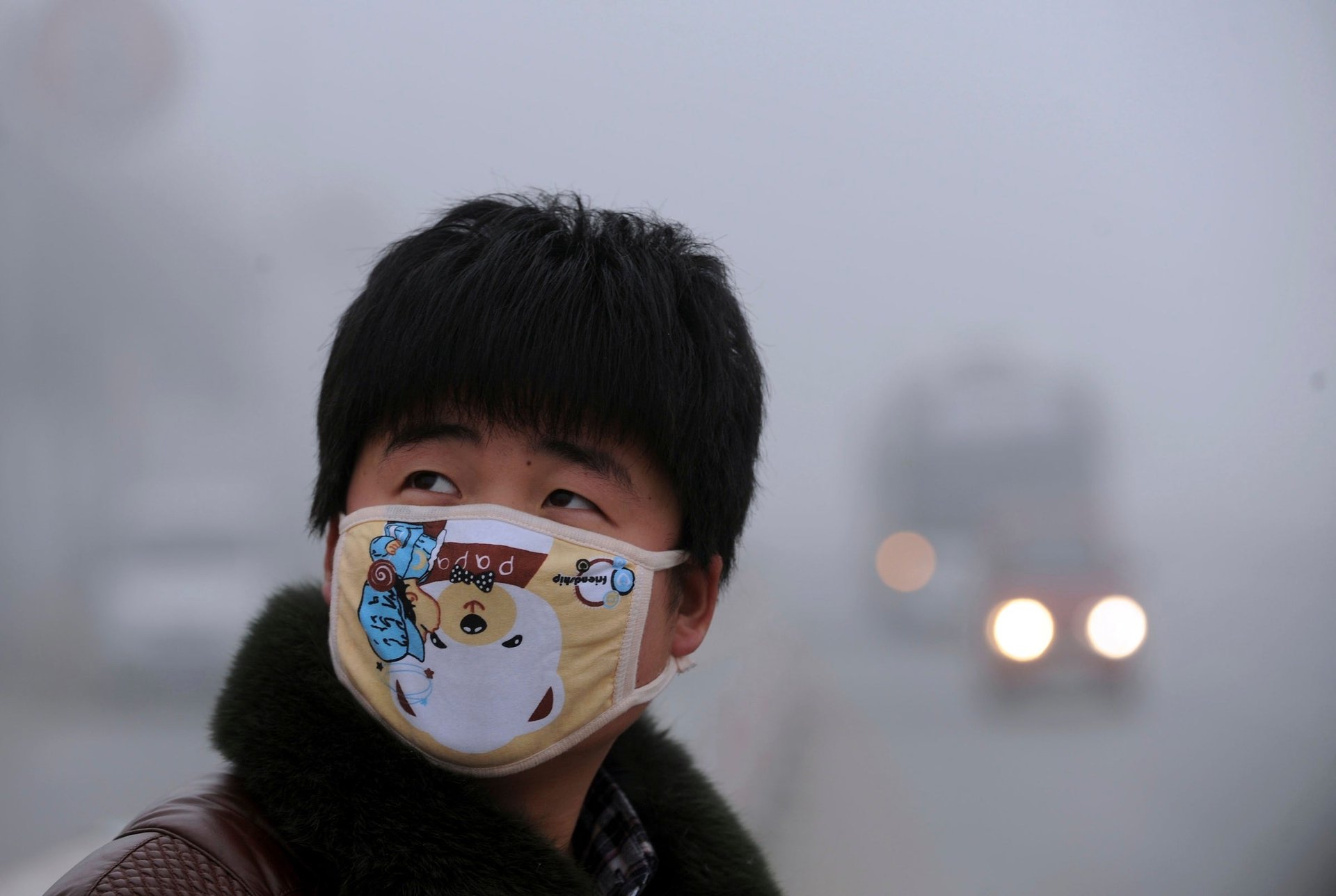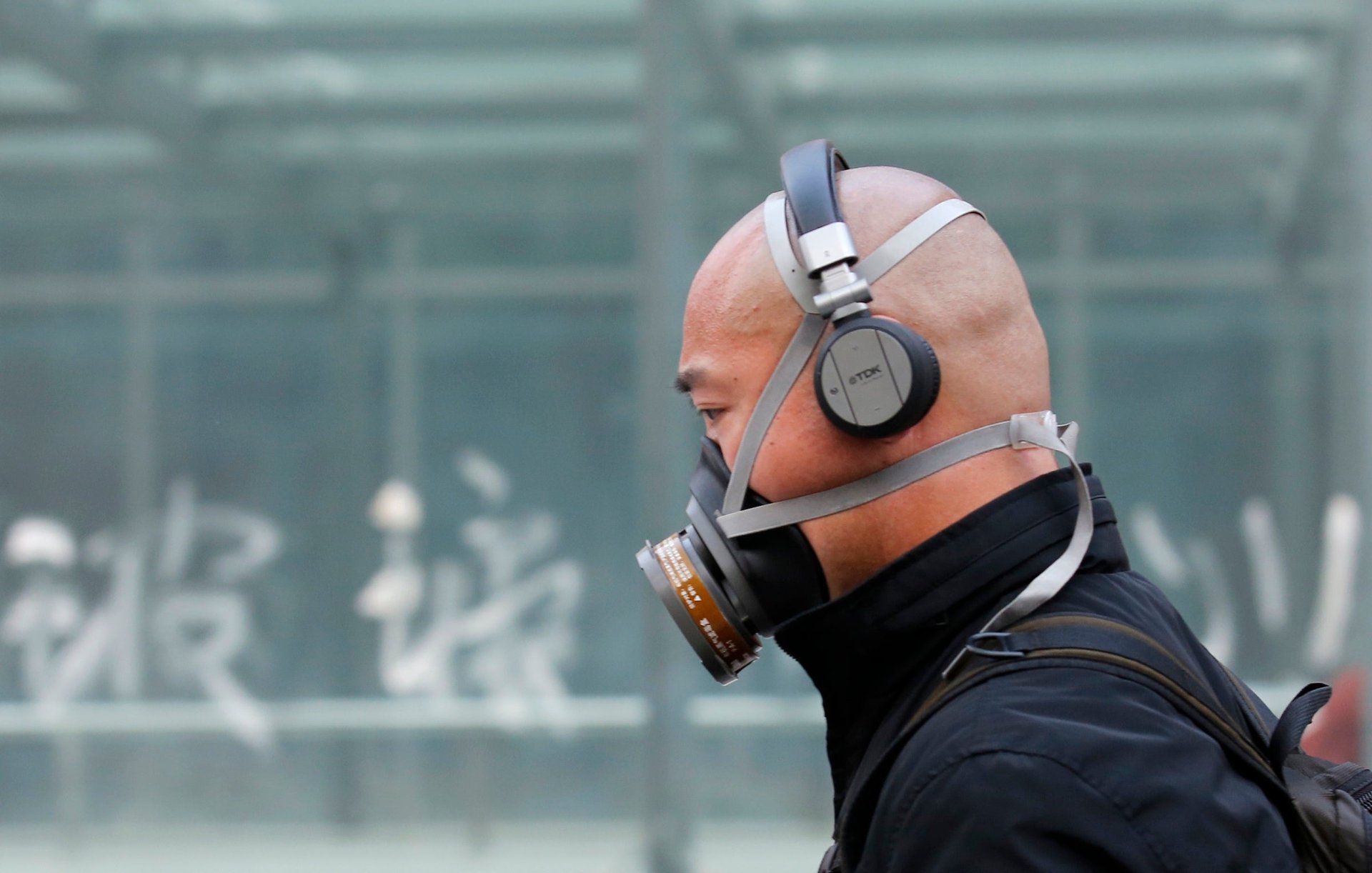Pollution in northern China has shaved residents’ life expectancy by an average of 5.5 years
In 1999, Shanghai’s mayor at the time visited Beijing and, noticing the smog, said, “If I worked in your Beijing, I would shorten my life at least five years.” His comment turned out to be not just prescient but weirdly precise. According to a new study, air pollution in northern China has shortened life expectancy by an average of 5.5 years.


In 1999, Shanghai’s mayor at the time visited Beijing and, noticing the smog, said, “If I worked in your Beijing, I would shorten my life at least five years.” His comment turned out to be not just prescient but weirdly precise. According to a new study, air pollution in northern China has shortened life expectancy by an average of 5.5 years.
The study (pdf) by researchers at Massachusetts Institute of Technology and Tsinghua University, finds that smog in China shaved off a total of 2.5 billion years of life expectancy of about 500 million people in the 1990s. The study is one of the few attempts to measure the long-term health effects of China’s pollution, as well as one of most comprehensive data sets compiled on mortality and air pollution in China. Another study this year found that pollution may have caused 1.2 million premature Chinese deaths in 2010.
Notably, the culprit isn’t just China’s many coal-fired plants that have fueled the last three decades of fast industrialization. According to the study, the public can also blame a well- intended government initiative to provide free heating in the winter to households and businesses via free coal. The program was only implemented in parts of China north of the Huai River and the Qinling mountain range.
“What we found is that people who live just north of the river have life expectancy of five and a half years [less],” Michael Greenstone, a professor at MIT and a co-author of the study told the Financial Times (paywall). The researchers analyzed pollution and mortality data between the 1980s and 2000. They found that air pollution, measured by particulate matter in the air small enough to enter one’s bloodstream, was about 185 micrograms per cubic meter, or 55% worse in the north.
Here are some photos of ways Chinese residents in the north are trying to protect themselves:


